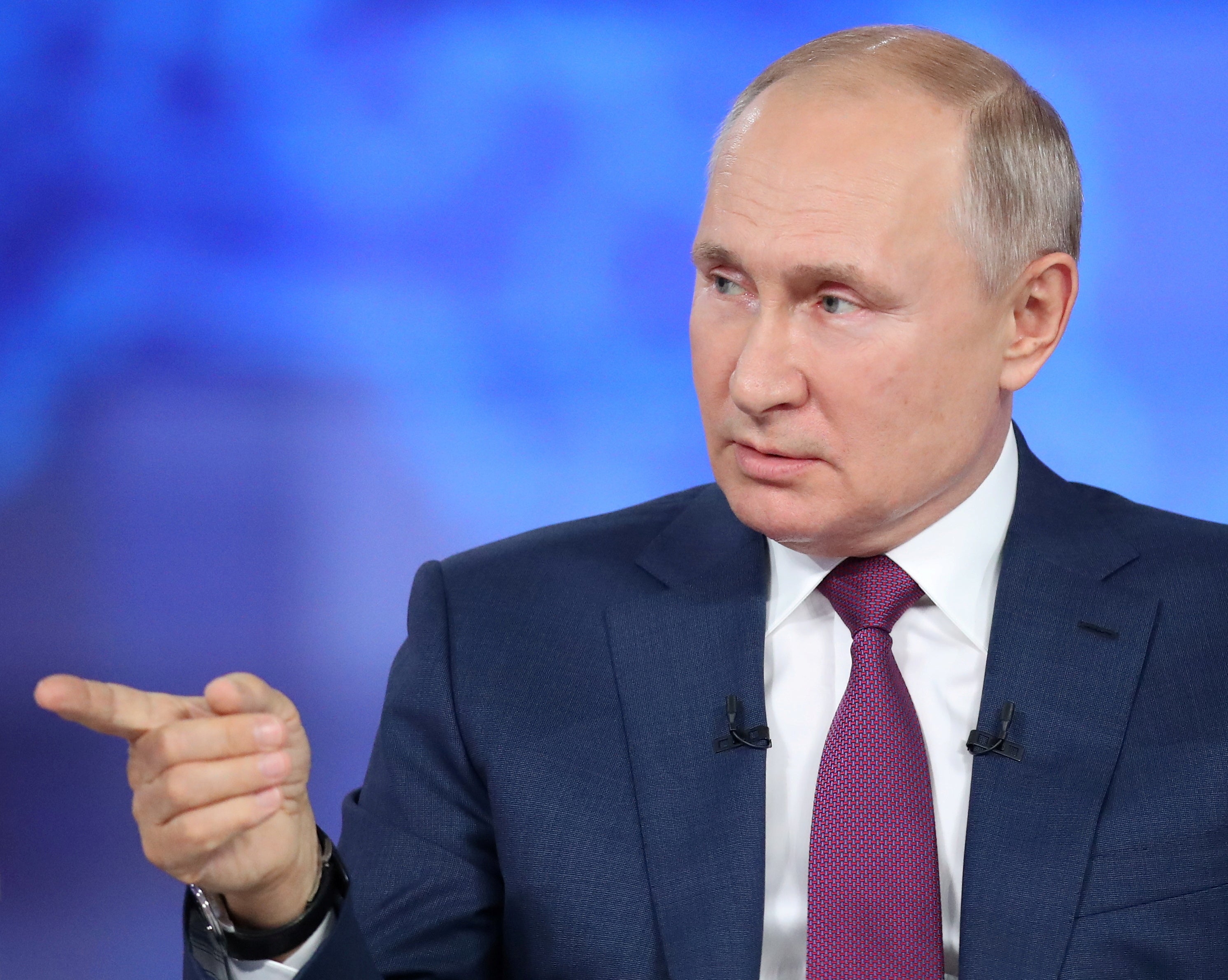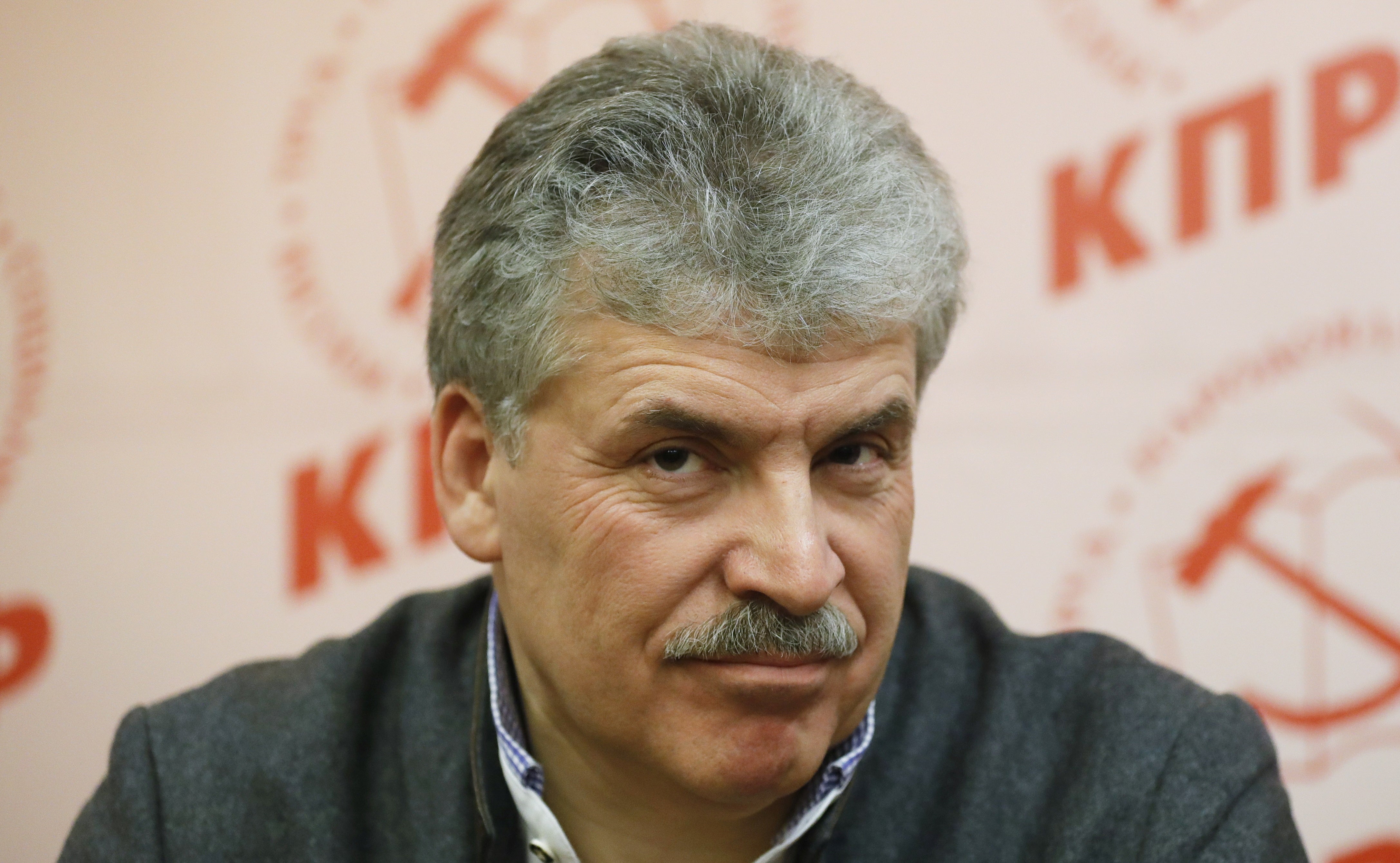‘The oversight is total’: Kremlin prepares for most controlled elections in modern era
Parliamentary elections take place in September and the Kremlin is using all means to ensure it gets the desired result, reports Oliver Carroll in Moscow


Your support helps us to tell the story
From reproductive rights to climate change to Big Tech, The Independent is on the ground when the story is developing. Whether it's investigating the financials of Elon Musk's pro-Trump PAC or producing our latest documentary, 'The A Word', which shines a light on the American women fighting for reproductive rights, we know how important it is to parse out the facts from the messaging.
At such a critical moment in US history, we need reporters on the ground. Your donation allows us to keep sending journalists to speak to both sides of the story.
The Independent is trusted by Americans across the entire political spectrum. And unlike many other quality news outlets, we choose not to lock Americans out of our reporting and analysis with paywalls. We believe quality journalism should be available to everyone, paid for by those who can afford it.
Your support makes all the difference.If you thought you were having a stressful week, spare a moment for Russia’s voting chief, Ella Pamfilova.
Once a human rights activist, the bureaucrat now has the task of guarding the Kremlin from surprises in September’s general elections. In the run-up to the vote, which will see candidates elected to the state Duma and the lower house federal assembly, her masters kindly raised the stakes with a heavy-handed clampdown on dissent, opposition and the media.
And things appear to be taking their toll.
On Sunday, the day Pamfilova removed leading Communist politician Pavel Grudinin from the ballot, and was accused of election rigging, the elections chief delivered an emotional tirade. “Lies are being thrown at me from all sides, but I’m proud to be helping to stop the country from falling apart,” she shouted.
Pamfilova’s evolution into a loyal, if conflicted, soldier of the regime reflects a more general progression in the Kremlin’s approach to elections.
Every post-Soviet election has to some extent been marred with obvious evidence of cheating. But at the time of Pamfilova’s appointment in 2016, when Vladimir Putin was riding a post-Crimean popularity wave, there was an attempt to play up honesty and legitimacy. In the lead up to general elections that year, Pamfilova reached out to NGOs and talked about the importance of political plurality.
Five years on, a very different political reality prevails. Amid falling ratings, Kremlin chiefs appear to have largely given up caring what critics think: what now counts is the result, manufactured or otherwise.
These are the most unfree elections modern Russia has seen
In the months leading to elections, the Kremlin likely authorised the poisoning of opposition leader Alexei Navalny, then his subsequent imprisonment, and the outlawing of his movement; it has designated swathes of independent journalists “foreign agents”; it has jailed countless activists, politicians and journalists; and it created a raft of new laws designed to block the participation of any difficult candidates.
“These are the most unfree elections modern Russia has seen,” says Grigory Melkonyants, co-chair of Golos, an independent election oversight NGO. It was “a matter of time” before law enforcement came to stop the work of his own organisation, the veteran activist added. “The oversight is total — from the opposition to civic society to the media. You really can’t call them elections.”
In 2016, the first election to feature Russia’s split PR and direct voting system, not a single independent deputy made the state Duma. Changes introduced since then make the elections even more vulnerable to the Kremlin’s whim.
In the first instance, they will take place over three days, between 17 and 19 September. Authorities say the extended voting is designed to mitigate Covid-19 crowding. Critics argue it offers two extra days and nights to stuff ballot boxes — helped by the fact polling stations will not have the live CCTV cameras that provided many “gotcha” moments in the past.
The three day voting will also make proper monitoring at Russia’s 95,000 polling stations complicated, says Melkonyants.
Another difference is the ease with which opposition hopefuls are being removed from the ballot. Before it required a court ruling. Now a memo from the justice department or general prosecutor about alleged irregularities is enough for the election authorities to act.
Given the moves to outlaw Navalny’s organisation in April, it is not surprising an order appears to have gone out to block his associates from running. But the implementation has been ugly to the point of recklessness. In Murmansk, local authorities appeared to quarantine a local Navalny party leader in a Covid-19 hospital to stop her filing papers. She has announced a hunger strike.
And the decision to remove Grudinin, a 2018 presidential candidate, is risky, and seems to reflect growing disquiet about the electoral potential of the Communists. More and more, the heirs to Lenin and Stalin appear to be the only opposition force the Kremlin does not properly control. Its strong activist and student following is in some respects closer to Navalny than it is to the party elite.
Grudinin, third on party lists, had been guaranteed election. In interviews following his Sunday delisting, the ex-candidate called for Russians to embrace the tactical voting against United Russia, Vladimir Putin’s ruling party, being promoted by Navalny. The opposition leader had been imprisoned for his views, the Communist added, with many of them “true”.
The last few years have not been happy for United Russia, which has increasingly been the target of anger over falling living standards and corruption. How low they are really scoring is anyone’s guess given the control over the main polling organisations. But even official pollsters VTSiOM put their rating at between 31 percent and 39 percent of definite voters — an underwhelming result for a party with a monopoly on propaganda.

Concerns over popularity have propelled party chiefs to ditch apparatchiks and notional leader Dmitry Medvedev from their PR lists. In their place is a motley crew of the Kremlin’s more popular ministers and doctors.
But it is unclear how the inclusion of ministers Sergei Lavrov and Sergei Shoigu, both associated with external policy, will address the main concerns of voters, which, according to Levada Centre, a small independent pollster, remain predominantly domestic: rising prices, poverty and corruption.
Residual anger means that despite all the shackles, some surprises are still possible. Political expert Konstantin Kalachyov, a man with experience advising many campaigns, predicts that new political forces may sneak through on party lists the most problematic regions: the far north, the north west, and Yakutia and Primorsky Krai in the Far East.
The capitals Moscow and St Petersburg, where the vote is best monitored, could also provide upsets, he says.
Melkonyanets meanwhile suggests the Kremlin’s intensifying clampdown is a direct result of worry over such unwelcome surprises.
“If the voting for United Russia was stable, it would not resort to the such measures,” says Melkonyants.
“Everything it is doing tells you it is coming at these elections from a position of considerable weakness.”
Join our commenting forum
Join thought-provoking conversations, follow other Independent readers and see their replies
Comments